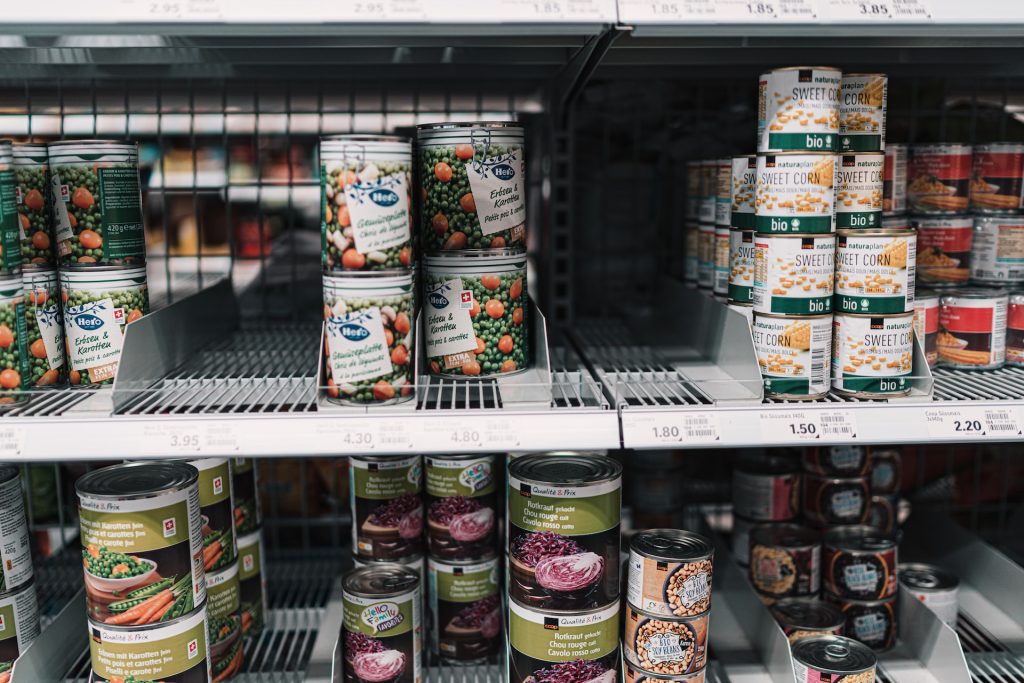Canning, a centuries-old method of food preservation, has played a pivotal role in ensuring the availability of food beyond its harvest season. The process involves sealing food in airtight containers like jars, steel, and tin cans, thereby extending its shelf life. The debate surrounding the nutritional value and potential drawbacks of canned foods has been ongoing, with advocates emphasizing convenience and skeptics highlighting concerns about additives and nutrient loss. Let’s delve into the pros and cons of canned foods to demystify this pantry staple.

Understanding Canned Food: A Nutritional Enigma
Canning is a meticulous process that involves three fundamental steps: processing, sealing, and heating. Fruits, vegetables, and other food items undergo preparation, are sealed in airtight cans, and then subjected to precise heating to eliminate harmful bacteria and prevent spoilage. The result is a pantry stocked with an array of canned goods, ranging from fruits and vegetables to grains, dairy, and protein sources.
Nutrient Levels in the Canning Equation
The perception that canned foods are inherently less nutritious is challenged by scientific findings. A 1997 study debunked the myth by revealing that canned fruits and vegetables boast dietary fiber and vitamin content comparable to, and sometimes exceeding, their fresh or frozen counterparts. The key to making informed choices lies in scrutinizing labels and ingredient lists to avoid excess salt, sugar, and added preservatives.
Advantages of Embracing Canned Delights
1. Ensured Flavor and Nutrient Quality
Contrary to misconceptions, canned foods can rival the nutritional prowess of fresh and frozen alternatives. The canning process effectively preserves minerals, fat-soluble vitamins, protein, fat, and carbohydrates, ensuring that the quality and quantity of these essential elements remain intact.
2. Convenient and Affordable Nutrient Boost
Canned foods emerge as a convenient and affordable avenue for integrating more fruits and vegetables into one’s diet. Especially beneficial for those residing in remote areas where fresh produce is scarce, canned goods offer a long shelf life, preventing food wastage and facilitating time-efficient meal preparation.
3. Wise Choices for Optimal Health
Making wise choices when opting for canned goods involves selecting products with minimal added sugar and sodium. Opting for fruits canned in water or 100 percent juice, and vegetables labeled “no salt added” or “low sodium,” ensures a healthier nutritional profile.
4. Potential Increase in Fiber Intake
Fiber, integral for digestive health and weight management, can receive a boost through canned foods. Studies indicate that canning enhances the solubility of fiber in certain vegetables like beans, making it more beneficial for the human body.
5. Comparable Nutritional Value
Harvested and canned at the peak of ripeness, canned foods retain the same flavor and nutrients as their fresh or frozen counterparts. This makes them a practical choice for maintaining nutrition without compromising on taste, especially in situations where access to fresh foods is limited.
6. Lightweight, Durable, and Easy to Store
Cans, the quintessential containers for canned goods, boast properties that protect food from oxygen exposure and excessive light. Their lightweight, durable nature makes them easy to store, carry, and dispose of, contributing to the overall convenience of canned foods.

Disadvantages: Navigating the Downside of Convenience
While canned foods offer undeniable advantages, it’s crucial to navigate the potential disadvantages associated with their consumption. Understanding these drawbacks empowers consumers to make informed choices aligned with their health goals.
1. High Salt Content
One significant drawback of canned foods is their often elevated salt content. The canning process may involve the use of dissolved salt, contributing to excess sodium intake. Opting for low-salt or no-salt alternatives can mitigate this concern.
2. Added Sugar Concerns
Certain canned fruits, packed in syrup, add unnecessary sugars to the diet. Choosing fruits canned in water or 100 percent fruit juice circumvents the issue of added sugars, aligning with a healthier dietary choice.
3. Botulism Risk
Nonacidic canned foods, inadequately treated during the canning process, pose a risk of botulism—a serious illness caused by Clostridium botulinum bacteria. Vigilance in checking cans for signs of damage is essential to avoid this potentially life-threatening condition.
4. Tissue Damage Potential
Canned soups often contain sodium phosphates for preservation, contributing to potential tissue damage. While phosphates are necessary for diets, the inorganic phosphates in canned foods may disrupt hormone regulation, increasing the risk of health issues.
5. Preservative Presence
The high heat involved in the canning process may lead to reduced water-soluble vitamins, prompting the addition of preservatives to enhance durability. Awareness of preservative content allows consumers to make choices aligned with their nutritional preferences.
6. BPA Concerns
Bisphenol-A (BPA), a chemical present in some can linings, raises concerns about its migration into food. Studies linking BPA to health issues highlight the importance of opting for BPA-free canned goods whenever possible.
7. Metallic Aftertaste
In certain instances, the metallic taste associated with canned foods may arise from the leaching of metal from cans into the food. Choosing cans with no signs of damage mitigates this metallic aftertaste concern.

Navigating the Aisles Mindfully
In the perennial debate of canned food’s pros and cons, the key lies in mindful navigation. Acknowledging the nutritional benefits while being vigilant about potential drawbacks empowers consumers to make choices aligned with their health goals. Whether it’s the convenience of a well-stocked pantry or the need for a sustainable food option, canned foods have carved a niche in modern dietary choices. As with any dietary decision, balance, awareness, and informed choices remain the cornerstone of a healthy relationship with canned delights.





